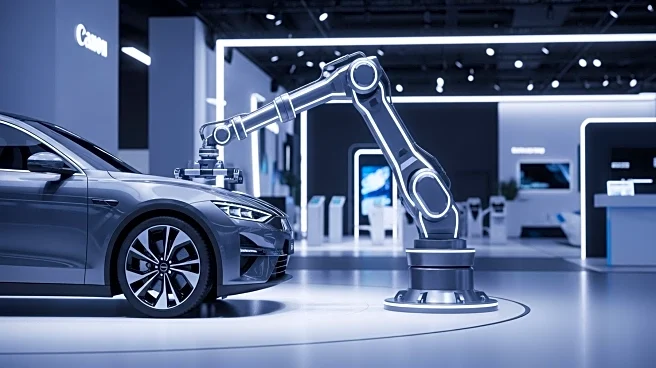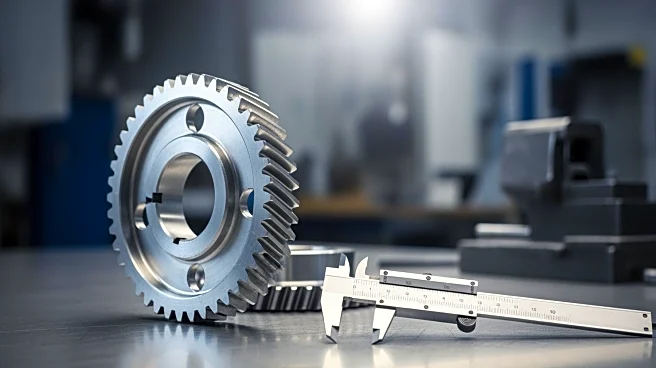What's Happening?
The 2025 World Manufacturing Convention has commenced in Hefei, Anhui Province, China, under the theme 'Intelligent Manufacturing For a Better Future.' The event highlights advancements in robotics and manufacturing, featuring interactive displays such as robots and new energy vehicles. Attendees have the opportunity to engage with various technological innovations, including autonomous buses and internet-connected vehicles. The convention aims to promote intelligent manufacturing and showcase the latest developments in the industry.
Why It's Important?
The convention underscores the growing importance of intelligent manufacturing and robotics in the global economy. By showcasing cutting-edge technologies, the event highlights the potential for these innovations to transform industries and improve efficiency. The focus on new energy vehicles and autonomous transportation reflects a shift towards sustainable and smart solutions, which could have significant implications for reducing carbon emissions and enhancing urban mobility. As countries strive to advance their manufacturing capabilities, events like this play a crucial role in fostering international collaboration and technological exchange.
What's Next?
The convention is expected to continue attracting industry leaders and innovators, fostering discussions on the future of manufacturing and technology. Stakeholders may explore partnerships and collaborations to leverage the showcased technologies for commercial applications. The emphasis on intelligent manufacturing could lead to increased investment in research and development, driving further advancements in robotics and sustainable transportation solutions. As the convention progresses, it may set the stage for future initiatives aimed at integrating these technologies into mainstream manufacturing processes.
Beyond the Headlines
The event also raises ethical and cultural considerations regarding the integration of robotics into daily life. As humanoid robots become more prevalent, discussions around their role in society, privacy concerns, and the impact on employment may gain traction. The convention provides a platform for addressing these issues, encouraging dialogue on how to balance technological progress with societal needs. Long-term, the advancements showcased could influence global manufacturing trends, potentially leading to shifts in economic power and labor dynamics.









